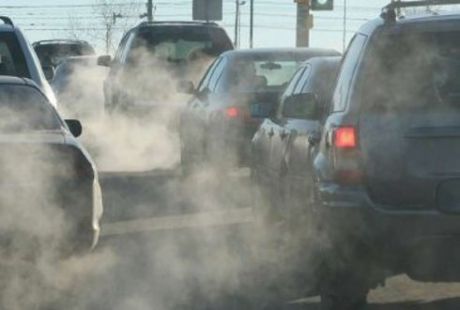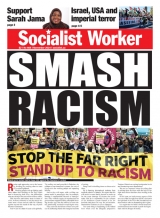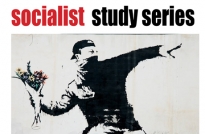Columns
You are here
The dead end of road tolls

December 30, 2016
When Toronto Mayor John Tory proposed tolls for the two main commuter arteries leading into Toronto, the Don Valley Parkway and the Gardiner Expressway, he sparked a debate which has shaken up the “progressive” community.
The majority of “left” City Councillors capitulated the call for the $2 per drive toll. That vote came in the context of a budget debate which portrayed the city as broke, demanding cuts of 2.6 per cent across the board. Transit fares have increased 10 per cent; as the city scrambles to pay for the new Presto fare payment system and other major capital projects, billions are required just to maintain existing, aging infrastructure.
Context
Tax cuts brought in by Rob Ford and previous administrations—in particular cuts to commercial and industrial tax rates, and bargain basement charges for developers—left the city without revenue generating tools. Those tools were badly needed because financial support from higher up the government food chain that once supported the city are drastically reduced or gone altogether.
Public transit is the best example. Before the 1995 election of Mike Harris’ Tories, the Ontario government paid 25 per cent of capital costs and 20 per cent of operating costs of the TTC. Harris forced municipal amalgamation, and cut transfer payments for things like public transit. Today Toronto’s transit receives the smallest subsidy per rider of any major North American city.
The burden of paying for transit was shifted from society to the individual; between 1990 and today fares went up 200 per cent, far surpassing the rate of inflation. TTC fares are among the most expensive in North America.
Federal and provincial governments that claim they cannot afford to underwrite public transit have been generously cutting taxes for the rich, and for corporations, while isolated taxpayers pick up the burden. Between 2000 and 2014 Canadian corporate tax rates were cut in half; in the same period taxes for working people remained virtually stagnant. At the same time tax loopholes and use of offshore tax avoidance have skyrocketed. Canadian corporation avoid paying between $6 billion and $8 billion each year thanks to these tricks.
This is the context in which road tolls appear: relentless service cuts and user fee increases for working people and a system rigged in favour of the corporate elite.
The debate
The most vocal left supporter of road tolls is Yves Engler, co-author of Stop Signs: Cars and Capitalism on the Road to Economic, Social and Ecological Decay. His four-part series in defence of tolls, on rabble.ca, argues that toll opponents “have objectively allied themselves with the private car’s awesome political, cultural and ideological power.”
As proof Engler describes how North American cities were redesigned around the private automobile. He argues, correctly, that capitalism maximizes its profits by foisting the broader social costs on the public: building and maintaining infrastructure to benefit the car, and the environmental consequences of fossil fuel burning private transportation.
I know of no opponent of road tolls who would not agree with the broad strokes of this argument. The private automobile is massively wasteful, toxically dirty, and utterly unsustainable. But, without any evidence, Engler spends a lot of words to portray critics of tolls as either ignorant or willing dupes of the auto lobby: “Left-wing opposition to tolls disregards the longstanding financial incentives, notably road and mortgage subsidies, for people to purchase large single-family suburban homes. But, it’s also a brazen denial of auto hegemony. Calling a toll a ‘flat tax’ is a tacit acceptance of a transport system where roads, highways and parking are endlessly subsidized (through public funds or hidden in prices everyone pays in higher store prices, rent, etc.).”
Engler portrays the “suburbs” as relentlessly right-wing, racist wastelands: “Conducive to consumerism, disconnected and depoliticized, the suburbs are bastions of conservatism and infertile grounds for social movements to back the scale between rich and poor. Right-wing politics reign supreme, intensifying as suburbs sprawl further outwards.”
As proof he cites the absence of protests outside urban centers. No one walks, so no one reads posters. There are no public centers for gathering. And suburban and ex-urban community elect only right-wing politicians.
It is true that activists in the suburbs face challenges to organizing, and it is true that social justice actions in these areas are rarer—but they do happen. Social justice activists might find it educational to escape their inner-city comfort zones the next time they organize something. And of course Engler doesn’t consider the kind of action that happens most often in the suburbs: strikes.
Engler is so focused on the car that you’d think suburbanites didn’t exist outside them. Tell that to the tens of thousands of people in suburban Mississauga who ride the bus to work each day. Where he considers people at all, it is to condemn them guilty of supporting or surrendering to “car culture.” They aren’t people with families and responsibilities, necessities and limited options for meeting them. Above all they aren’t workers who have the potential to change their lives.
Engler begins Part 3 of his series: “There’s no doubt tolls hurt poor people, but a car-dominated transportation system does far more damage and everyone who wants a more just society should support measures that help rid our over-heating planet of private automobiles.” That’s a hella big “but”—perhaps the poor should be grateful their suffering will bring social justice.
That “but” shows up whenever Engler wants to gloss over the burden on working class commuters: “To the extent lower income folks drive the Gardiner Expressway or Don Valley Parkway a $2 toll is obviously a greater burden (though income-contingent tax rebates can remedy this). But driving and income are inversely correlated. Poorer people own fewer vehicles and drive less since shoes, a bike, or bus pass are cheaper than a personal car.”
Whether downplaying the hardship on workers and the poor, or trying to justify privatization (“…often the less public space there is in a neighbourhood, the more pleasant it is…”) Engler’s approach is mired in his abstract “car culture” analysis.
If it were just Yves Engler arguing for tolls—yes, regressive flat taxes by another name—I would ignore him. Sadly, he speaks for far too many who consider themselves progressive or on the “left.” For them the working people stuck in cars on the DVP or Gardiner are the problem, certainly not actors with the potential to solve the problem.
There are no alternatives for workers having to commute into the city. Public transportation is scarce, underfunded, overburdened and inadequate. Living in the city to eliminate the commute is increasingly unlikely; the average Toronto one-bedroom apartment now rents for $1500 per month. The condo building boom has seen almost no new rental housing created for decades.
Alternatives
Our opposition to tolls should demand: first, build adequate public transport with full funding from senior levels of government; second, implement a public housing program to increase urban housing density with good, affordable rental units. Closing off-shore tax avoidance loopholes would pay for the whole shebang.
When, and only when those alternatives are in place can we talk about strategies for reducing traffic. Sure, these are difficult demands that would require a lot of organizing. But if no one from the left raises these alternatives, imposing tolls will drive overburdened working commuters into the waiting arms of some home-grown Trump surrogate.
Are workers capable of self-emancipation from the automobile? Or do they have to be dragged kicking and screaming to their salvation by enlightened “progressives” like Engler? These are the questions at the heart of the tolls debate.
Section:










